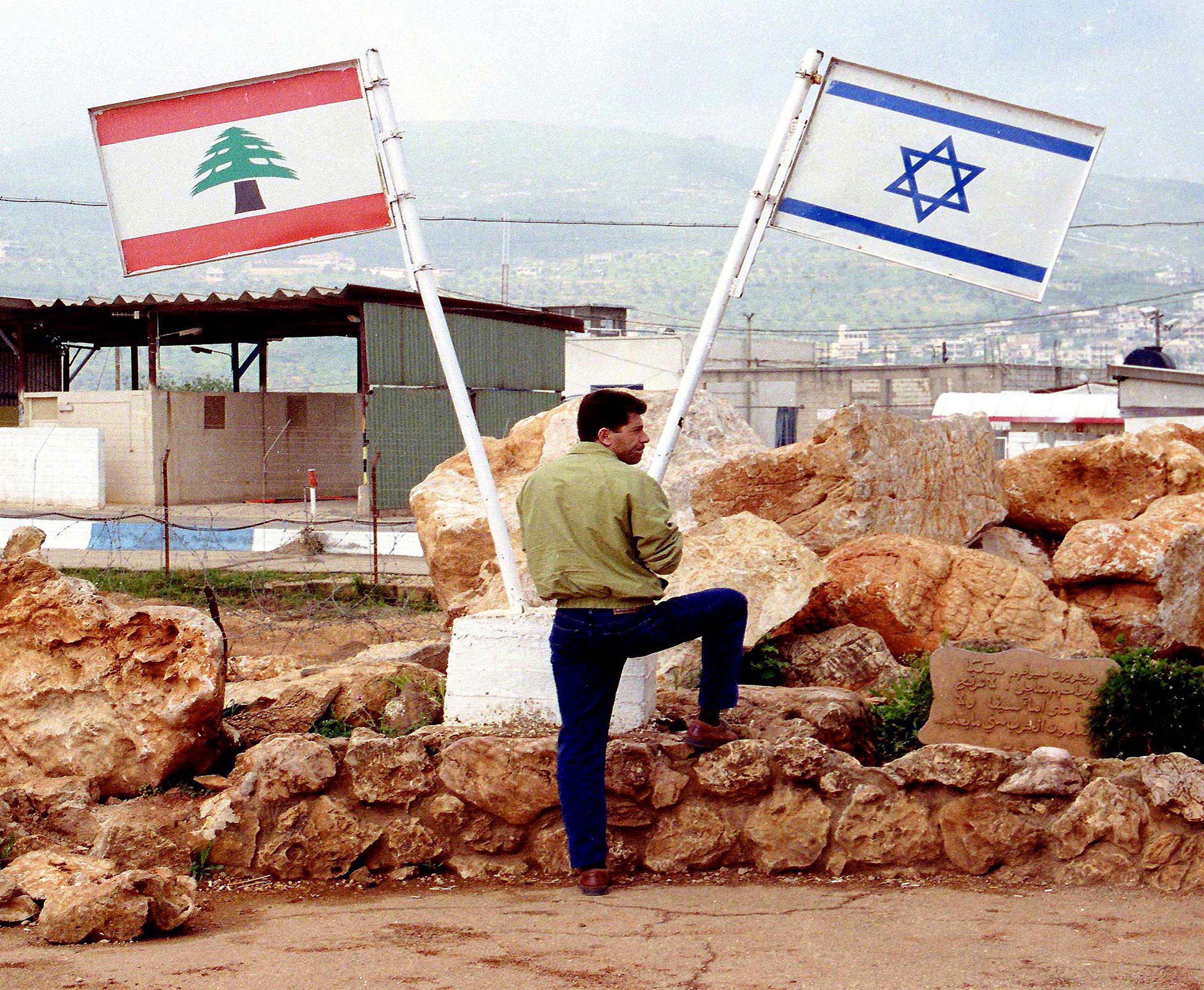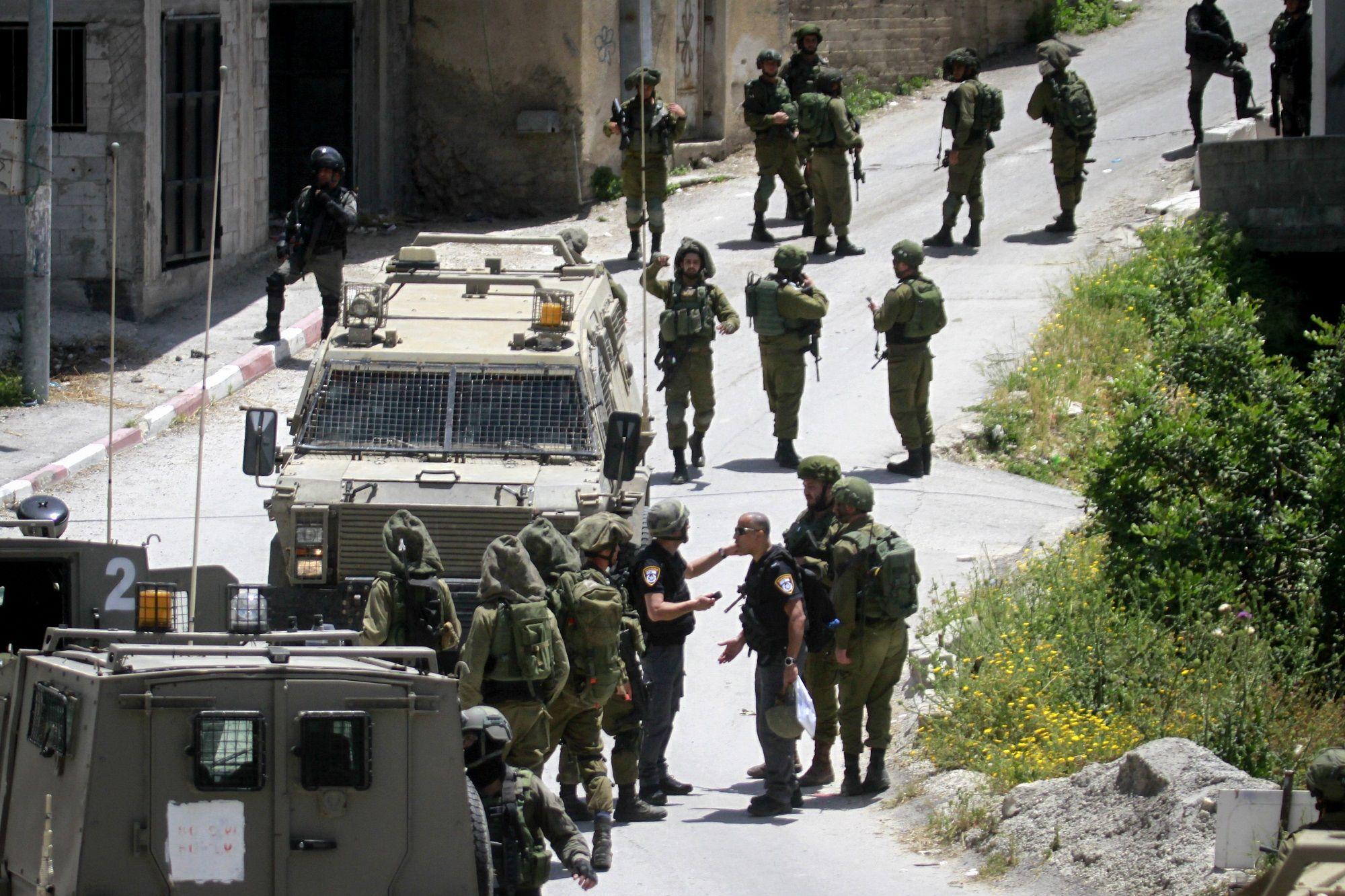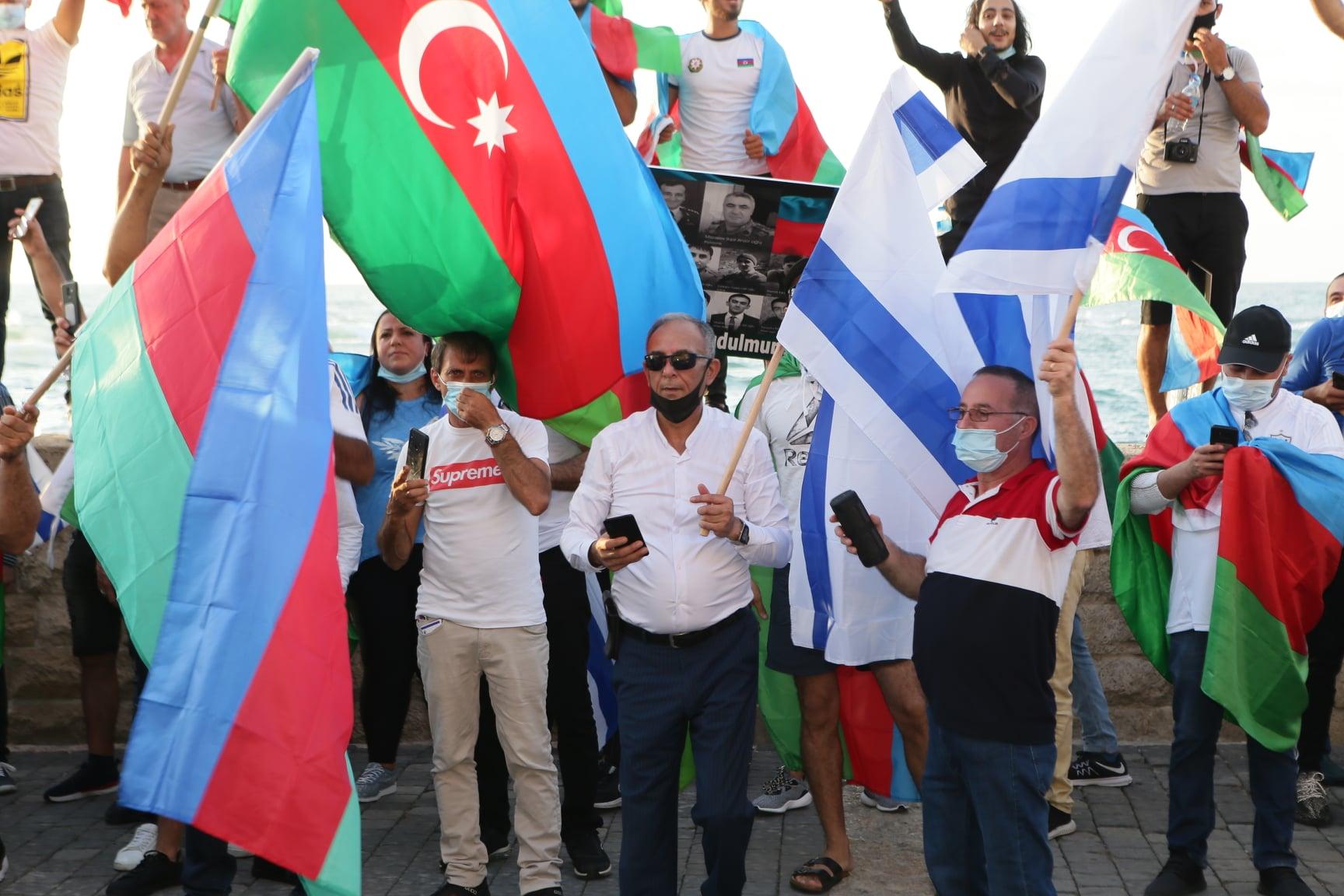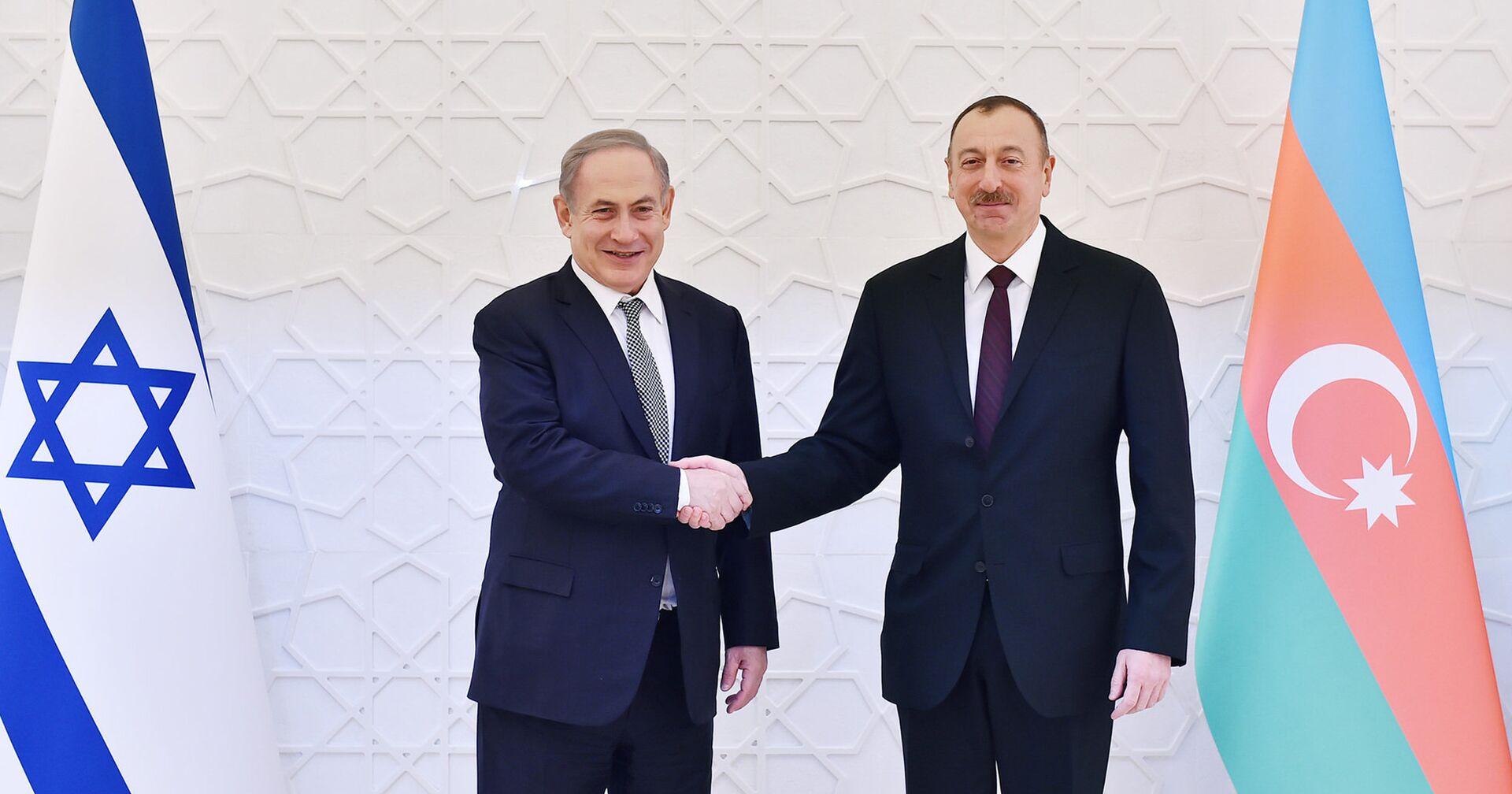Azerbaijan as a peace broker: Navigating the Israel-Hezbollah tensions Article by BESA
The website of the Israeli analytical centre BESA (Begin-Sadat Centre for Strategic Studies) has published an article on the possible mediating role of Azerbaijan in the geopolitics of the "Greater Middle East". Caliber.Az reprints this article.
Since 8 October last year, alongside the “Iron Swords” operation against Hamas in the Gaza Strip, Israel has been “actively defending” against Hezbollah, Iran’s chief proxy. Although the conflict remains positional, its geographical depth and intensity are growing, and the prospect of a full-scale confrontation with Hezbollah seems increasingly likely.
This war could be the prologue to a major regional war in which the US and its NATO allies cannot stand aside. In Washington, D.C. and in Paris discuss diplomatic alternatives. Also in this field new players appear, for example, Azerbaijan. In July, Azerbaijani Foreign Minister Jaihun Bajramov sent an Israeli colleague a message from Lebanese Minister Abdullah Bu Habib assuring that Beirut wants to avoid war . Israel replied that it “need(s) to return our residents to their homes, if it is not through a diplomatic solution, it will be through war.”

The question arises: is this exchange of messages merely an attempt by Lebanon to take responsibility for a possible war by blaming Israel, or are there real intentions and goals behind it? If second, why did Beirut turn to Baku, and why does Azerbaijan need it?
In search of the optimal mediator
At first glance, if Beirut’s intentions are serious and it fears turning Lebanon into a state resembling Gaza Strip, it makes sense to use existing diplomatic channels. For example, they could turn to the USA or France, who are already undertaking mediation efforts. Alternatively, they could try to influence Israel through Saudi Arabia, which, despite the delay in normalizing relations with Israel due to the war in Gaza, maintains a close security partnership and invests billions of dollars into Lebanon’s economy to curb the influence of Iran and its proxy Hezbollah.
The relevance of each candidate to mediate between Lebanon and Israel remains in question. France supported Hezbollah’s demand for a ceasefire in Gaza before negotiations with Israel, which is unacceptable to Jerusalem. Consequently, Israel rejected a trilateral summit with the US and Israel, which Emmanuel Macron proposed at a G7 meeting in Italy as part of an effort to secure a diplomatic solution amid escalating violence.
The cessation of hostilities in Gaza as a pretext for de-escalation on the Israeli-Lebanese border was also supported by the Americans. The US administration has clearly stated that in the event of a war with Hezbollah, it will intervene on Israel’s side. Therefore, the American channel may be problematic for Beirut, not for Jerusalem.
Turning to Saudi Arabia or its allies also poses challenges for Lebanon. Despite the restoration of relations, the geostrategic rivalry between Riyadh and Tehran continues. The recent one-day Iran-Israel war has altered the situation on Israel’s northern front. While Hezbollah refrained from a full-scale attack on Israel after October 7, 2023, so that the ayatollahs could keep it in reserve in case of an Israeli strike on Iranian nuclear facilities, it has now adapted a “rational escalation approach” in line with Tehran’s plans.
It is doubtful that Hezbollah would allow the Lebanese leadership to take steps contrary to Iran’s interests. Significantly, Acting Foreign Minister Abdallah Bou Habib has repeatedly echoed Hezbollah’s false narrative of “Israeli occupation of Lebanese lands” as the “sole reason” for its conflict with Israel.

Another complication is that official Beirut needs a demonstrative demarche to put Hezbollah in a binding context. It is no coincidence that information about Lebanon’s de-escalation proposal was provided to English-speaking Israeli and Western media with a broad audience. While Israel has no issue with this, involving Saudi Arabia and other Arab countries of the Persian Gulf, given the regional geopolitical and internal Lebanese circumstances, is possible only discreetly.
Turning to Azerbaijan allows Lebanon to bypass complications. Baku should have no issues with the publicity of the mediation or public sentiments, which are predominantly sympathetic to Israel. A study showed that 61% of Azerbaijanis consider Israel a “reliable partner,” less than 15% are indifferent, and only 4% view it negatively. After October 7, there has been no significant pressure in Azerbaijan to adopt a tougher policy against Israel, unlike in Arab countries.

The key point is that while Saudi Arabia and its Arab allies are deeply involved in the Middle Eastern conflict, Azerbaijan is not a participant. In this sense, Baku appears to be an almost ideal mediator. The remaining question is why Azerbaijan would need this itself.
Interests of Baku
There are several theories on this matter.
The first and most obvious answer is that Jerusalem and Baku have long-standing strategic relations. Azerbaijan supplies Israel with energy and participates in gas exploration projects in the Eastern Mediterranean. In return, Israel provides Azerbaijan with advanced agricultural and civil technologies, as well as military products that played a key role in the Azerbaijani army’s victory in Karabakh in 2020 and its swift victory in September 2023. Baku is also considered a source of intelligence information for Israel on Iran.
Baku’s diplomatic move can be seen as a favor to Jerusalem, which does not want to start a full-scale war with pro-Iranian groups, including Hezbollah, before completely defeating Hamas in Gaza. This could also allow Israel to enter into a de-escalation agreement with Hezbollah from a “position of strength,” as noted by security adviser Tzachi Hanegbi: “Israel too would prefer a diplomatic way in resolving the conflict with Hezbollah…. If not…, everyone understands that there must be an arrangement through other means”.
The second theory suggests that Azerbaijan’s motives are related to its vision of regional and transregional interests. Baku sees Iran’s ambitions to lead a “worldwide Islamic revolution” supported by terrorist groups and influence across the globe, as a serious threat. Azerbaijan understands that it could become a target of these plans and has already faced subversive actions by the Iranian regime. Therefore, besides Israel, Baku seeks allies against the Iranian threat. The US and key European countries involved in Eastern Mediterranean affairs have not yet provided clear prospects regarding Azerbaijan’s accession to the EU and NATO.
An alternative for Azerbaijan in ensuring its security and development is the consolidation of the “Turkic world.” Azerbaijan’s energy and other resources support these ambitions and foster partnerships. Türkiye, which claims leadership in the Turkic world and has close allied relations with Azerbaijan, also considers this option. Baku does not want to play a secondary role in the Turkic alliance, considering it unsafe. Therefore, Israel is also an important geopolitical resource for balancing Ankara’s ambitions.
The optimal option for Baku would be a trilateral alliance between Israel, Azerbaijan, and Türkiye. This was almost achieved after the normalization of relations between Israel and Türkiye in 2021, in which Azerbaijani President Ilham Aliyev is believed to have played a critical role. However, after the start of Operation “Iron Swords” in Gaza, Turkish President Recep Tayyip Erdoğan reverted to antisemitic rhetoric, disrupting the newly restored relations with Jerusalem. Despite pressure from Ankara, Baku continued to strengthen cooperation with Israel and now seeks additional pro-Western Arab resources that oppose Iran and are not hostile to Israel.
The Gulf Arab states, led by Saudi Arabia, fully meet these criteria. By joining forces with them, the Turkic confederation could block Iran and limit its influence in the region, forming a united front against Iranian aggression. The Saudis and their allies will need an effective coordinator and partner in the Turkic world.

Türkiye, despite outwardly correct relations, is not suitable for this role due to its neo-Ottoman strategy, which raises suspicion among Arab monarchies and authoritarian regimes. Azerbaijan can be an adequate replacement, especially if it confirms its significance by helping to avoid a full-scale conflict between Israel and Lebanon and a possible regional war.
The third theory suggests that Baku’s willingness to mediate between Israel and Lebanon may be driven by its desire to demonstrate its geopolitical ambitions against France. France, which is increasing its influence in the South Caucasus and Central Asia, has been particularly active in these regions, especially after the Second Karabakh War. France, traditionally supporting Armenia, almost officially sided with it in the conflict with Azerbaijan in late 2020.
Azerbaijan has also shown antagonism towards France: in July 2023, it initiated the “Baku Initiative Group” — a forum to support the independence of France’s colonies, which was perceived as a “hostile” action in Paris and Yerevan. This initiative, along with other actions by Azerbaijan, has been viewed as part of a “hybrid war” against France.
To summarize: Baku’s willingness to undertake a mediating mission between Israel and Lebanon can be explained by several factors that complement rather than contradict each other.
Military diplomacy in the modern Middle Eastern conflict is becoming a multilateral process. Major global and regional powers are finding it increasingly difficult to manage the conflict, given the intertwining of ethnic, religious, and geopolitical interests. As a result, the old players are losing their monopoly on managing the situation, yielding the initiative to new participants.
Within the framework of the “Greater Middle East,” new regional centers of power are emerging, and Azerbaijan, judging by the described events, plays a significant role.
Editor's note: The author of this article is Ze'ev Khanin, an Israeli political scientist, an expert on Israel's Russian-speaking community, and a professor at Ariel University in the West Bank.








